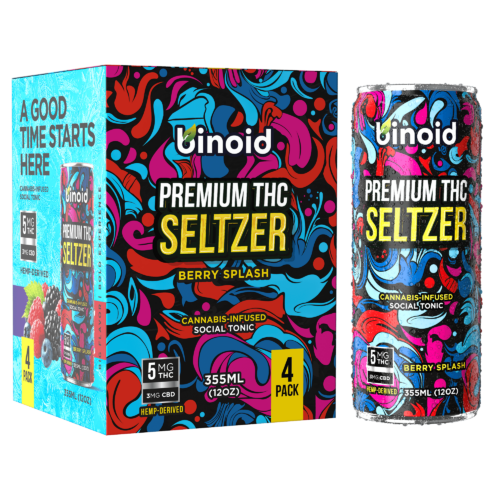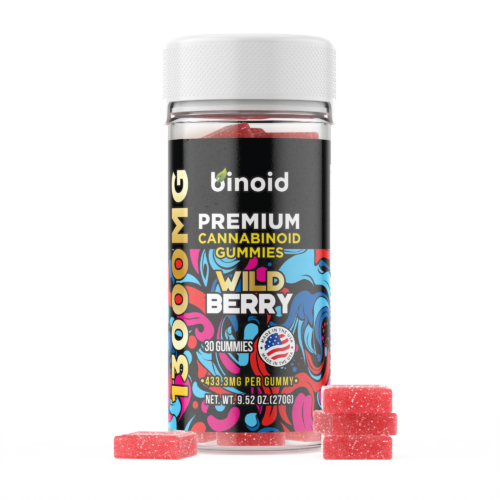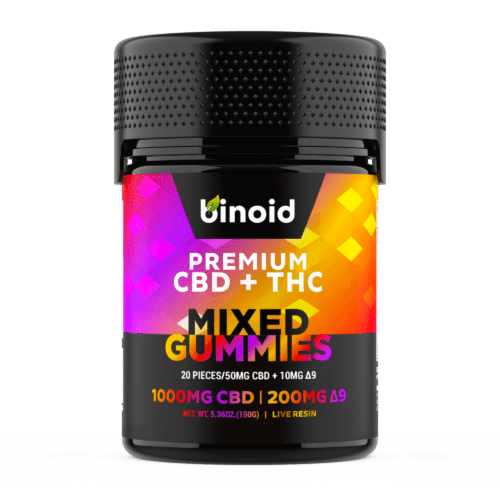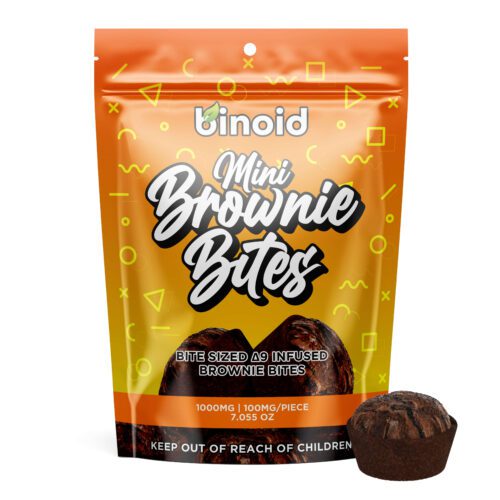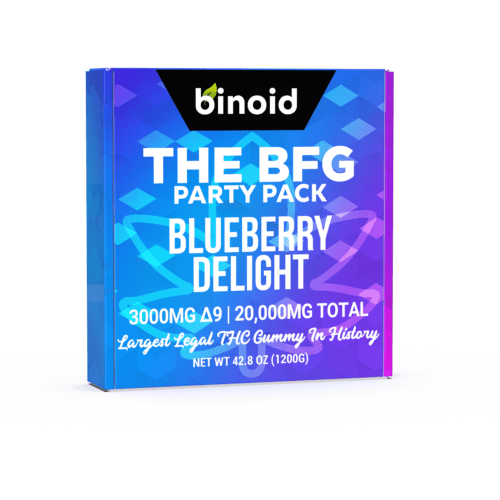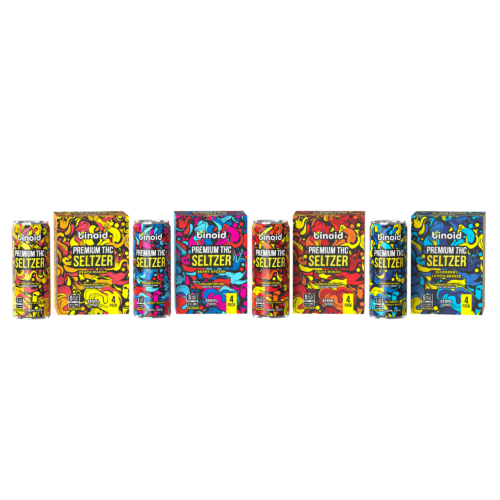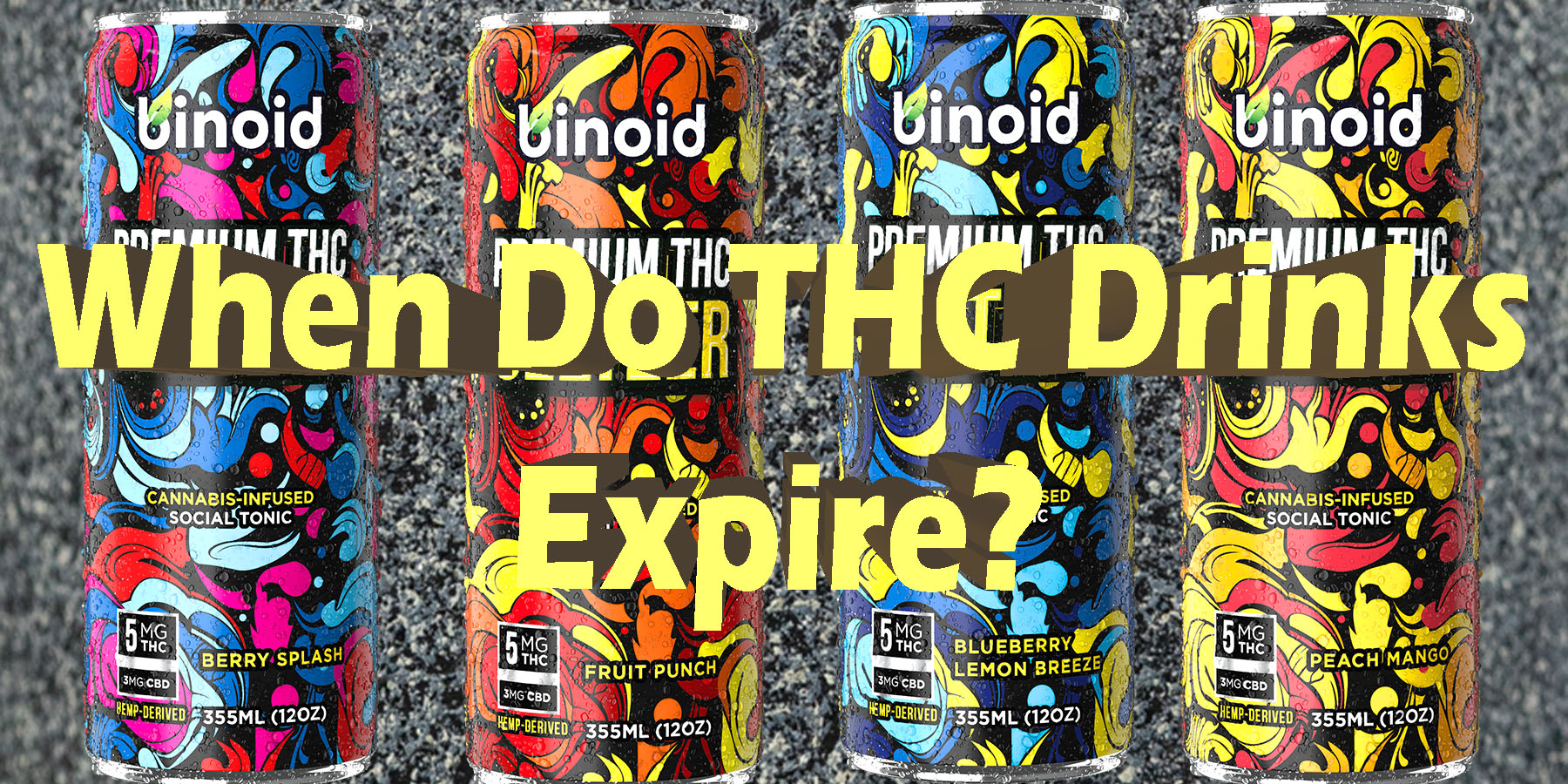
When Do THC Drinks Expire?
In the back of almost every refrigerator or pantry, there exists a special shelf. It’s a place for items saved for the right moment—a celebratory bottle of champagne, a box of gourmet chocolates, or perhaps, a chilled can/bottle of a favorite THC-infused drink. We keep these treasures in reserve, waiting for the perfect occasion to indulge.
But as days turn into weeks and weeks into months, a nagging question can begin to surface. Does that can, purchased with the promise of future bliss, have a deadline? Can the magic of a carefully crafted cannabis beverage fade over time, or worse, spoil completely? The journey to a relaxed and euphoric state is one we want to be fresh and predictable, making the question of expiration not just a matter of curiosity, but a crucial piece of knowledge for any discerning consumer.
To Buy THC Drinks Click Here
Recommended products
What are THC Drinks?
Before we can determine the shelf life of these intriguing beverages, it’s essential to understand their fundamental nature. At its core, a THC drink is a commercially produced, ready-to-drink beverage that has been infused with a precise, measured dose of Tetrahydrocannabinol (THC). This compound, the most famous cannabinoid from the cannabis plant, is the primary agent responsible for the feelings of euphoria, bliss, and relaxation that users seek.
The true innovation behind these drinks is the scientific process that allows the naturally oil-based THC to be seamlessly integrated into a water-based liquid. This provides a convenient and consistent way to consume cannabis, with a level of control that makes the experience approachable for a wide range of adults who are mindful of what they consume. The stability of the ingredients used in these formulations is a key factor in determining their overall longevity.
The modern market for THC drinks is a vibrant landscape of diverse options, with each category defined by its base ingredients and production methods, which in turn affect its shelf stability. The creation of these beverages hinges on the science of emulsification, a process that takes the naturally oil-based cannabis extract and makes it completely dispersible in liquid, allowing for a world of culinary possibilities:
THC Seltzers: This category is defined by its minimalist ingredient profile, which contributes to its relatively high stability. The foundation of a THC seltzer is purified, carbonated water, which is a very stable base. The production process involves infusing this water with a nano-emulsified THC distillate and adding subtle natural fruit essences for flavor. With no sugar or organic solids to spoil, the main consideration for their shelf life is the integrity of the can and the stability of the cannabinoid emulsion itself. They are almost universally packaged in hermetically sealed aluminum cans, which are excellet at protecting the contents from light and oxygen, two major enemies of freshness and potency.
THC Sodas: These beverages are designed to replicate the indulgent and sweet experience of traditional soft drinks and are defined by their high sugar content. The manufacturing process starts with a syrup base of water, a significant amount of a sweetener, and flavorings. Sugar itself is a natural preservative, which can contribute to a longer shelf life by inhibiting microbial growth. A measured dose of THC extract is infused into this base before carbonation and packaging. They are typically sold in aluminum cans or glass bottles, both of which provide a good barrier against environmental factors, making them quite shelf-stable from a safety perspective.
THC Waters: THC-infused waters are crafted for purity, with an ingredient list that is often the shortest in the beverage world. The process begins with purified or distilled water, into which a tasteless, colorless, water-soluble THC isolate or distillate is infused. Because these drinks often contain no sugar, organic matter, or other additives that can spoil, they are very stable. The main concern over time is not spoilage but the potential degradation of the THC molecule itself. The packaging, often clear PET plastic bottles, offers less protection from light than aluminum cans, which can be a factor in their long-term potency.
THC Lemonade: This classic non-carbonated beverage is made from a base of lemon juice, water, and a sweetener. The use of real fruit juice, which contains natural organic compounds and sugars, makes lemonade inherently less stable than a simple seltzer. The production involves creating large batches and often pasteurizing the product to kill any potential microbes, thereby extending its shelf life. The acidity from the lemon juice also acts as a natural preservative. These drinks are often packaged in cans or bottles, with pasteurization being the key step that determines their longevity.
THC Tea: This category, which includes both ready-to-drink (RTD) iced teas and brew-at-home tea bags, involves organic plant matter. For RTD iced teas, real tea leaves are brewed, and the resulting liquid is cooled, sweetened, and infused with THC. Because tea contains tannins and other organic compounds, it can change in flavor over time. These products are almost always pasteurized to ensure they are shelf-stable. They are typically packaged in glass bottles or aluminum cans. For dry tea bags, the shelf life is much longer, similar to any other herbal tea product.
THC Coffee: Similar to tea, THC coffee involves organic ingredients that can affect its stability. For ready-to-drink cold brew products, a batch of coffee is brewed, cooled, and infused with a THC emulsion. Coffee is acidic, which helps with preservation, and these products are typically pasteurized and packaged in airtight cans or bottles to ensure a long shelf life. For whole-bean or ground coffee that has been infused with THC oil, the primary concern is the freshness of the coffee itself; the oils in the coffee can go rancid over time, affecting the taste long before the THC potency significantly drops.
THC Cocktails: These complex, non-alcoholic beverages often contain a wide array of ingredients, including real fruit juices, botanical extracts, and various flavorings, to mimic the taste of traditional THC cocktails. The presence of these diverse organic ingredients, particularly citrus juices, makes them more susceptible to flavor degradation than simpler drinks. To ensure shelf stability, they are typically pasteurized and may contain natural preservatives like citric acid. They are most often packaged in single-serving aluminum cans, which provide excellent protection for the complex flavor profiles and sensitive cannabinoids within.
THC-infused Wines and Beers: The production of these non-alcoholic beverages begins with a fully fermented wine or beer, which is then dealcoholized. The base liquid that remains has many of the same characteristics as the original, including compounds from grapes or hops that can evolve over time. After the THC emulsion is infused, the product is pasteurized and packaged in traditional wine or beer bottles or cans. The shelf life is often similar to other non-alcoholic beers and wines, where the primary concern is the degradation of the delicate flavor profile rather than safety.
THC Drink Mix: This product category, which comes in a dehydrated powder or a liquid concentrate form, is generally designed for a very long shelf life. The production of the powder involves removing almost all moisture, which is essential for preventing microbial growth. These mixes often contain anti-caking agents and preservatives to keep them stable for long periods. They are packaged in sealed, single-serving sachets or multi-serving containers that protect the contents from air and moisture. As long as they are kept dry and sealed, these mixes are one of the most stable forms of THC beverage.
Recommended products
Now, the general effects of a THC drink are primarily characterized by their onset and duration, which differ significantly from other consumption methods like traditional edibles. Many beverages on the market utilize nano-emulsion technology, which breaks the THC oil into microscopic, water-dispersible particles. This allows the body to absorb the THC much more quickly, often through the soft tissues in the mouth and throat, bypassing a long journey through the digestive system.
As a result, users typically begin to feel the effects within 10 to 20 minutes. This rapid feedback loop is a key feature, as it allows an individual to better assess the effects in real-time, which is crucial for managing the experience and avoiding the common pitfall of taking too much before the effects have even begun.
The audience for THC drinks is exceptionally broad and continues to grow as the stigma around cannabis recedes. A primary group of consumers are those who are “canna-curious” but are put off by the idea of smoking or vaping. The familiar and socially acceptable format of a beverage provides a much less intimidating entry point. Another significant demographic is composed of individuals actively looking to reduce or replace their alcohol consumption. THC drinks offer a way to participate in social rituals and achieve a pleasant buzz without alcohol and its associated next-day consequences. Furthermore, the growing wellness movement has drawn in health-conscious consumers who are attracted to the many low-sugar, low-calorie, and all-natural options that align with a more mindful lifestyle.
Recommended products
So, Do All THC Drinks Expire, and if So, When?
Yes, all THC drinks eventually expire, but what “expiration” means in this context is a crucial, two-part concept involving both quality and potency. Virtually every THC drink will display a “best by” or “best before” date on its packaging. It is important to distinguish this from a “use by” date, which’s typically reserved for highly perishable foods where bacterial growth is a significant safety concern. For shelf-stable beverages like most THC drinks, the date is a manufacturer’s carefully calculated estimate of how long the product will remain at its peak quality.
This date is a promise of the optimal sensory experience—the crispest carbonation, the brightest flavor, the intended color. After this date, while the drink may still be perfectly safe to consume, its quality will begin a slow and steady decline, representing the first stage of expiration. The second stage, which occurs simultaneously, is the chemical degradation of the active ingredient, THC, due to unavoidable environmental factors.
The most stable types of THC drinks, and therefore those with the longest shelf lives, are typically products with the simplest ingredients housed in the most protective packaging. THC seltzers and THC waters are prime examples. Composed often of just carbonated or still water, THC extract, and minimal flavorings, they lack the complex organic matter that spoils easily. When packaged in aluminum cans, they receive maximum protection.
The modern canning process creates a hermetic seal, eliminating nearly all oxygen, while the can’s opaque nature blocks 100% of UV light. Furthermore, cans have a thin polymer lining that prevents the beverage from ever touching the aluminum, ensuring the taste remains pure. High-sugar THC sodas also boast impressive stability. The high sugar concentration and low pH from added acids create an environment extremely hostile to microbial growth, acting as a powerful preservative system that can keep the product tasting great for a year or even longer.
On the other end of the spectrum, THC drinks formulated with more complex, natural, and organic ingredients tend to have a shorter window for peak quality, even when they are perfectly safe to drink for much longer. THC-infused lemonades and cocktails that use real fruit juice, or ready-to-drink teas and coffees brewed from actual leaves and beans, contain a host of delicate organic compounds. Over time, these compounds undergo slow, non-threatening chemical changes that affect taste.
Juices can experience non-enzymatic browning (the Maillard reaction), which can alter their color and create flat or cooked flavors. The tannins and polyphenols in teas can oxidize, leading to a more bitter or astringent taste profile. While processes like pasteurization are used to eliminate microbes and ensure safety for many months, they cannot halt these slow chemical reactions. Thus, the “best by” date on these products is a more critical indicator of the intended sensory experience.
Beyond the quality of the beverage itself, the most important aspect of expiration for a THC drink is the inevitable degradation of the THC molecule. THC is a relatively fragile cannabinoid, and it has three primary enemies: oxygen (which causes oxidation), heat (which accelerates all chemical reactions), and UV light (which provides the energy to break chemical bonds in a process called photolysis). Over time, constant exposure to these elements causes THC to undergo a specific chemical transformation.
It does not simply disappear or lose its power; a significant portion of the THC molecule rearranges itself and converts into a different, more stable cannabinoid called Cannabinol, or CBN. This means that a drink left in a hot car, or stored for two years on a bright shelf will not only taste subpar but will also be significantly less potent in terms of its primary psychoactive ingredient. The blissful, euphoric journey it once promised will be substantially diminished and replaced by something else entirely.
Recommended products
What Factors Accelerate the Expiration Process?
While every THC drink has an eventual expiration date, the speed at which it reaches that date is not fixed. Several environmental factors can dramatically accelerate the degradation of both the beverage’s quality and its cannabinoid potency. Understanding these factors is crucial for proper storage and for ensuring the drink you consume delivers the experience you expect. By controlling these variables, you can effectively press pause on the aging process, preserving the freshness and effectiveness of your beverage for as long as possible. The primary culprits behind a rapidly expiring THC drink are heat, light, and oxygen, each playing a distinct and destructive role in the breakdown of the product.
Heat is arguably the most significant accelerator of expiration. On a fundamental level, heat is energy, and introducing this energy into a beverage speeds up all chemical reactions within it. This includes the reactions that cause flavors to break down and taste stale, as well as the chemical conversion of THC into CBN. A can of THC seltzer left in a hot car for an afternoon can undergo more degradation than a can kept in a cool pantry for months. The heat excites the molecules, causing them to collide more frequently and with greater force, leading to a rapid loss of carbonation, a “cooked” flavor profile, and a significant drop in THC potency. Consistent, cool temperatures are the single most important factor in long-term preservation.
Light, specifically the ultraviolet (UV) spectrum, is another powerful enemy of cannabinoid stability. UV rays are a form of high-energy radiation that can directly break the chemical bonds within the THC molecule, a process known as photolysis. This is why the packaging of a THC drink is so important. Opaque aluminum cans offer complete protection from light, which is why they are the gold standard for preserving potency. Glass bottles, especially clear or light-colored ones, offer far less protection. A THC drink in a clear glass bottle left on a sunny windowsill for even a day can experience a measurable loss of THC. This is a primary reason why you should always store your THC drinks in a dark place, like a cupboard, pantry, or refrigerator, regardless of their original packaging.
Oxygen is the third major factor, driving the process of oxidation, which can degrade both flavor and cannabinoids. While a sealed can or bottle contains very little oxygen, the moment you open it, the clock starts ticking much faster. This is also a concern for products with faulty seals or packaging that is not airtight, such as some screw-top bottles. Oxidation can cause the flavors in the beverage to become stale and can turn certain compounds bitter. For the THC molecule, oxidation is a key step in its conversion to CBN. This is why an opened THC drink should be consumed relatively quickly—ideally within a day or two—as its quality and potency will begin to decline rapidly once exposed to the air.
Recommended products
Can You Still Have a THC Drink if It Expired?
Deciding whether to consume a THC drink that has passed its printed date requires a careful, two-step assessment that prioritizes safety above all else. Before you even consider potency or flavor, you must treat the product like any other packaged beverage and perform a thorough inspection for signs of spoilage. The most alarming red flag is a bulging or swollen can. This indicates that microbial activity inside—typically from yeast or bacteria that survived the production process—has produced gas like CO2, creating positive pressure. A bulging can is a definitive sign of contamination, and the product must be discarded immediately without being opened.
When opening a can, listen for the familiar hiss of escaping carbonation. If a carbonated drink is silent, it means the seal has failed, allowing oxygen in and carbonation out. Pour the drink into a clear glass and look for any visual anomalies. Murky discoloration, unusual sediment or clumps, or any visible signs of mold growth are clear indicators of spoilage. Finally, trust your sense of smell. Any off-putting, sour, vinegary, or musty aroma means the drink is no longer safe, and it must be thrown away.
If the beverage passes all the initial safety checks and appears perfectly normal—it fizzes correctly, smells right, and looks clear—the next consideration shifts from safety to the quality and potency of the experience it will provide. It is almost certain that an expired drink will be an underwhelming version of its former self. The sensory qualities will be the first to suffer. For carbonated drinks, the effervescence will likely be weak or completely gone, leaving the drink feeling flat, heavy, and syrupy.
The bright, distinct “top notes” of the intended flavor profile—the zesty citrus, the fresh berry, the floral botanicals—will have faded significantly over time, a process known as flavor degradation. What remains is often a dull, muddled, or sometimes slightly more bitter base flavor. You will not be getting the delicious, crisp, and refreshing experience that the manufacturer intended and that you originally paid for.
The most crucial factor to consider, however, is the altered state of the active ingredient and the different feelings it will produce. Again, as THC degrades, it doesn’t just get weaker; it actively transforms into Cannabinol (CBN). Therefore, drinking an old THC beverage will likely result in a completely different experience than the one you were anticipating. The uplifting, euphoric, giggly, or creative feelings typically associated with THC will be significantly muted or entirely absent. Instead, because CBN is a cannabinoid known for having more sedative properties, you may find yourself feeling unexpectedly tired, heavy-lidded, foggy, or “couch-locked.”
This could be incredibly undesirable if you were planning on a social, active, or creative session. You might drink a beverage expecting a spark of blissful energy and instead find yourself wanting to lie down for a nap. This chemical shift means that while it may be safe to drink, the expired beverage simply cannot deliver on its original promise.
Looks Like THC Drinks Do Have an Expiration Date, But That’s Not Always a Bad Thing Either
In the end, the date printed on the bottom of a can of your favorite THC beverage is more than just a simple deadline; it’s a quiet reminder of the nature of the experience itself. The journey to a state of bliss or euphoria is meant to be fresh, vibrant, and lived in the moment. The fact that the potency of the THC and the quality of the flavor can fade over time encourages us not to hoard our special occasions but to create them. It’s a gentle nudge to enjoy things at their peak and to practice a kind of mindful consumption that values the present over a dusty future. The natural transformation of these compounds is not a flaw, but a characteristic of a natural product, a lesson in impermanence that encourages us to pop the top and savor the bliss when it’s at its most brilliant.

